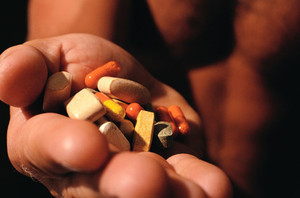The implications of the US biosimilars law and the pending patent expiries of the 12 major biological products in the EU and the US will have an impact on the profitability and viability of the biosimilars industry [1].
Development and manufacturing of biosimilars has already been discussed as being a surmountable hurdle. The remaining barriers to market entry for biosimilars include the US law and the timing of patent expiries.
The US now has a legal pathway for biosimilars with the approval of the Biologics Price Competition and Innovation [BPCI] Act. However, practical guidance is still being worked on by FDA.
While doubts have been expressed over whether the biosimilars pathway in the US will ever be used [2, 3]. However, Dr Ronny Gal, Sanford Bernstein analyst, believes that although flawed, the biosimilars pathway via the BPCI is likely to become a functioning legal pathway [4].
Twelve biological products are expected to be exposed to biosimilar competition by 2020, accounting for US$23 billion in EU sales, and US$29 billion in US sales.
Biosimilar market profitability
Bernstein Research expects that five years after launch, most biosimilar markets will look similar to generics, with biosimilars taking a 70% market share and being priced at 25% of the originator product. However, they admit that a ‘brand-like’ market with lower price reductions and lower market share for biosimilars is also possible. Under the brand and generic scenarios, biosimilar industry revenues will reach US$7–8 billion and operating profits US$2.5–3 billion by 2020. The impact of biosimilars would thus be significant in generics companies portfolios.
The series of three articles that follow attempts to answer outstanding questions regarding the US biosimilars law, the impact of patent expiries and the profitability of biosimilars by giving a brief overview of the remaining barriers to biosimilars entry.
Related articles
The US biosimilars law may prove a barrier to entry for biosimilars
How cheap will biosimilars need to be
The market for biosimilars
Development of biosimilars
Manufacturing of biosimilars
Challenges ahead for biosimilar development
EGA meeting London 2011: biosimilars competitiveness in the EU
References
1. Gal R. Biosimilars: Reviewing US Law and US/EU Patents; Bottom Up Model Suggests 12 Products and $7-$8B Market by 2020. Bernstein Research. 26 May 2011.
2. GaBI Online - Generics and Biosimilars Initiative. US biosimilars pathway unlikely to be used [www.gabionline.net]. Mol, Belgium: Pro Pharma Communications International; [cited 2011 September 16]. Available from: www.gabionline.net/Guidelines/US-biosimilars-pathway-unlikely-to-be-used
3. GaBI Online - Generics and Biosimilars Initiative. Questions over US biosimilars pathway in light of Teva’s BLA [www.gabionline.net]. Mol, Belgium: Pro Pharma Communications International; [cited 2011 September 16]. Available from: www.gabionline.net/Biosimilars/General/Questions-over-US-biosimilars-pathway-in-light-of-Teva-s-BLA
4. GaBI Online - Generics and Biosimilars Initiative. US biosimilars pathway unlikely to be used [www.gabionline.net]. Mol, Belgium: Pro Pharma Communications International; [cited 2011 September 16]. Available from: www.gabionline.net/Biosimilars/Research/Biosimilar-regulatory-issues
Source: Bernstein Research








 0
0











Post your comment